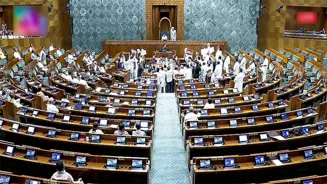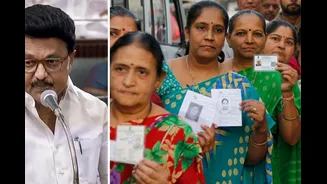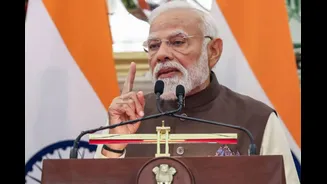New Delhi: Union Home Minister Amit Shah is likely to table a new bill in the Parliament today with provisions to remove Prime Minister, Chief Ministers
and top ministers if they are arrested over criminal charges. According to the List of Business in the Lok Sabha, Amit Shah will introduce the Constitution (One Hundred and Thirtieth Amendment) Bill, 2025, to further amend the Constitution of India and the Government of Union Territories (Amendment) Bill, 2025, apart from the bill to amend the Jammu and Kashmir Reorganisation Act, 2019.
What we know about bill to remove PM, CMs, top Ministers
- The new bill will have provision for removal of Prime Minister, Union Minister, or Minister of State (MoS) arrested or detained on serious criminal charges.
- It will also allow the removal of Chief Minister or minister of a Union Territory when arrested or detained on serious criminal charges.
- According to reports, the bill would allow the removal of Prime Minister, Chief Ministers and Minister of State (MoS), who remain in jail for more than 30 days for crimes which have a provision of imprisonment for over 5 years.
- However, if proven not guilty, they would get their post back once they are out of jail.
- The bill is being introduced to establish a moral high ground among the citizens for public servants, and representatives in order to charge them if they are booked and found guilty.
- Further according to the bill, it is expected that the character and conduct of Ministers holding the office should be beyond any ray of suspicion.
What we know about Jammu and Kashmir Reorganisation (Amendment) Bill 2025
The Jammu and Kashmir Reorganisation (Amendment) Bill 2025 seeks to amend section 54 of the Jammu and Kashmir Reorganisation Act, 2019, to provide a legal framework for the removal of the Chief Minister or a Minister in case of arrest or detention in custody on account of serious criminal charges.
It stated that a Minister facing allegations of serious criminal offences, who is arrested and detained in custody, may undermine the principles of constitutional morality and good governance, ultimately eroding the constitutional trust people have in him.
However, there is no provision under the Jammu and Kashmir Reorganisation Act, 2019 (34 of 2019) for removal of the Chief Minister or a Minister who is arrested and detained in custody on account of serious criminal charges.
"In view of the above, there is a need to amend section 54 of the Jammu and Kashmir Reorganisation Act, 2019, for providing legal framework for removal of the Chief Minister or a Minister in such cases," the statement said.
What is Section 5A?
Section (5A) is sought to be inserted in the bill. As per section (5A) a minister, who for any period of thirty consecutive days during holding the office as such, is arrested and detained in custody, on allegation of committing an offence under any law for the time being in force, which is punishable with imprisonment for a term which may extend to five years or more, shall be removed from his office, by the Lieutenant Governor on the advice of the Chief Minister to be tendered by the thirty-first day, after being taken in such custody.
The bill provides that if the advice of the Chief Minister for the removal of such Minister is not tendered to the Lieutenant Governor by the thirty-first day, he shall cease to be a Minister, with effect from the day falling thereafter.
The amendment also provides that in case of the Chief Minister, who for any period of thirty consecutive days during holding the office as such, is arrested and detained in custody, on allegation of committing an offence under any law for the time being in force, which is punishable with imprisonment for a term which may extend to five years or more, shall tender his resignation by the thirty-first day after such arrest and detention, and if he does not tender his resignation, he shall cease to be the Chief Minister, with effect from the day falling thereafter.
It also provides that nothing in this sub-section shall prevent such Chief Minister or Minister from being subsequently appointed as the Chief Minister or a Minister, by the Lieutenant Governor, on his release from custody, as per sub-section (1).
With inputs from ANI















